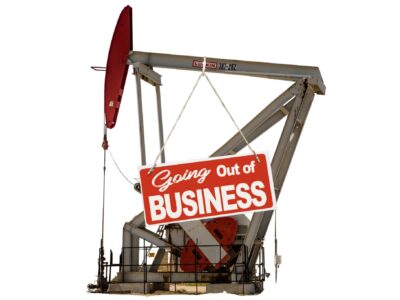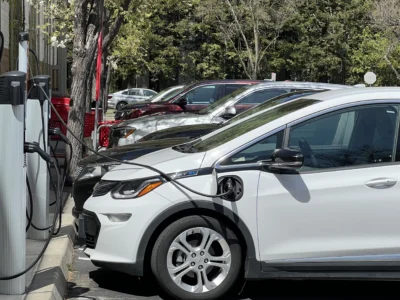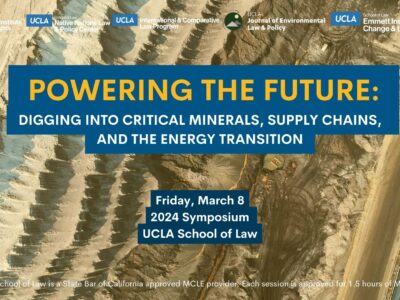Climate Change
Ranking the Candidates’ Focus on Energy & Climate
Some campaign websites mention these issues only in passing. Others went into more detail.
I thought it would be helpful to provide some kind of objective measure of how much various candidates focus on energy and climate. I based this on how extensively they discuss these issues on their websites. By this ranking, Biden came in first — surprisingly, ahead of progressives Jill Stein and Cornel West. Also surprisingly, …
Continue reading “Ranking the Candidates’ Focus on Energy & Climate”
CONTINUE READINGThe ‘Year of Climate’ in International Courts
Guest contributor Rebecca Hamilton previews several opinions that touch on the question of the international legal obligations of States in light of the climate emergency.
“The Year of Climate in International Courts” by guest contributor Rebecca Hamilton was originally published on Just Security This year promises to be the ‘Year of Climate’ in international courts and tribunals with opinions slated to be coming down from the European Court of Human Rights, the Inter-American Court of Human Rights, the International Tribunal …
Continue reading “The ‘Year of Climate’ in International Courts”
CONTINUE READINGRipped from the Headlines
This is not, unfortunately, an April Fool’s joke. Not at all.
Here’s a selection of recent headlines, which I only wish I had made up for April Fool’s Day. “Earth just had its hottest year ever recorded — by far.” — NBC “Hurricanes are getting so intense, scientists propose a Category 6”— Washington Post “Parts of Amazon rainforest could tip toward collapse by 2050, study warns.” …
Continue reading “Ripped from the Headlines”
CONTINUE READINGFlorida is a Climate-Denying Hellscape
Florida lawmakers want to erase climate change from their laws and ban local heat protection ordinances ahead of what could be another summer of record-breaking heat.
Take the latest, science-backed climate policies that are gaining traction in state houses around the country — and then do the exact opposite. That seems to be the Florida playbook for dealing with the climate crisis facing Floridians in the form of rising sea levels and deadly temperatures. This legislative session, state lawmakers in the …
Continue reading “Florida is a Climate-Denying Hellscape”
CONTINUE READINGNew Bill Takes Up Local Oil Drilling Phase-Outs
Oil and gas interests want to weaponize new case law from the California Supreme Court. AB 3233 would clarify the scope of local authority over drilling operations.
When the California Supreme Court ruled last August that Monterey County could not enforce its voter-approved ban on new oil and gas wells, lawyers for Chevron said the company was “pleased” to end the 7 years of litigation. Monterey County is home to the eighth-largest oil field in California, so there was plenty at stake …
Continue reading “New Bill Takes Up Local Oil Drilling Phase-Outs”
CONTINUE READINGThe New EPA Car Rule Doesn’t Violate the Major Questions Doctrine
They both relate to climate, but West Virginia v. EPA involved a very different regulation raising very different issues.
In West Virginia v. EPA, the Supreme Court struck down the Obama-era Clean Power Plan. The heart of the ruling was that EPA had engaged in a power grab, basing an unprecedented expansion of its regulatory authority on an obscure provision of the statute. Conservative groups have claimed since then that virtually every government regulation …
Continue reading “The New EPA Car Rule Doesn’t Violate the Major Questions Doctrine”
CONTINUE READINGThe Changing Politics of Coal
Coal has gone from a national conservative rallying cry to a niche state concern.
The “War Against Coal” was a major conservative theme eight years ago. Now it seems almost forgotten even by Donald Trump, who was once coal’s caped crusader. But although protecting coal production is no longer much of a national issue, keeping coal-fired power plants open has percolated as an issue at the state level. It …
Continue reading “The Changing Politics of Coal”
CONTINUE READINGCritical Insights on the Mineral Boom
In the race for critical minerals, the challenges, tradeoffs, and potential winners are becoming clear. Insights from the Emmett Institute’s “Powering the Future” symposium.
A couple hundred miles north of the Las Vegas strip at Rhyolite Ridge you’ll find a dusty yellow wildflower called Tiehm’s buckwheat that grows nowhere else in the world. But this flower sits atop a massive, untapped lithium reserve that would help the U.S. transition to cleaner energy. Now, what if you had to choose …
Continue reading “Critical Insights on the Mineral Boom”
CONTINUE READINGReplacing McConnell
If the GOP flips the Senate, who will lead them on environmental issues?
Who will lead the Senate in 2025? The odds are that it will be a Republican. Democrats have a slim margin and face some close races, while all the GOP seats seem secure. That makes the question of who will replace Mitch McConell as GOP leader all the more important for climate and energy policy. …
Continue reading “Replacing McConnell”
CONTINUE READINGHow to Cooperate with China on Climate
A conversation with Joanna Lewis about what has worked, and what hasn’t, when it comes to bilateral climate cooperation with China.
China is the world’s largest producer of both CO2 emissions and green technology to cut those emissions. It installed more solar panels last year than the U.S. has in its history, and yet keeps building coal-fired plants too. And Chinese officials just announced that the country will accelerate the construction of solar, wind and hydropower. …
Continue reading “How to Cooperate with China on Climate”
CONTINUE READING













